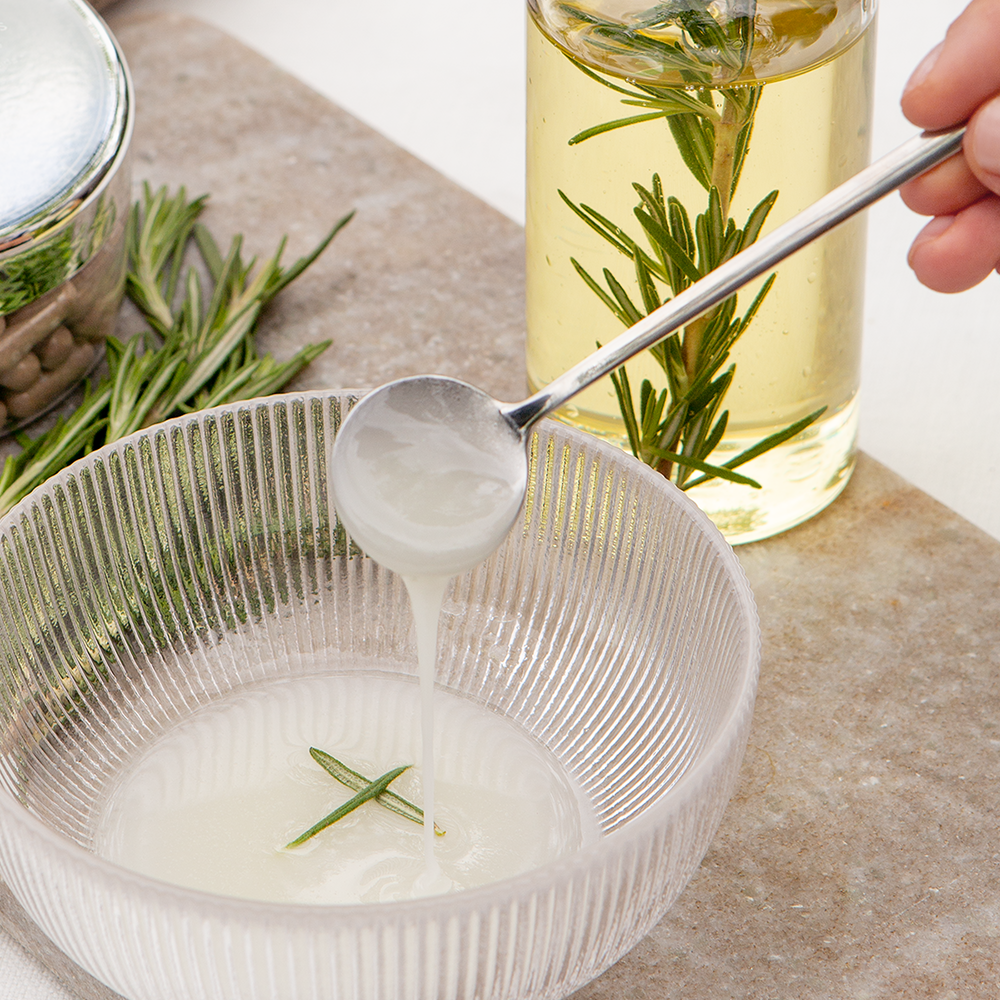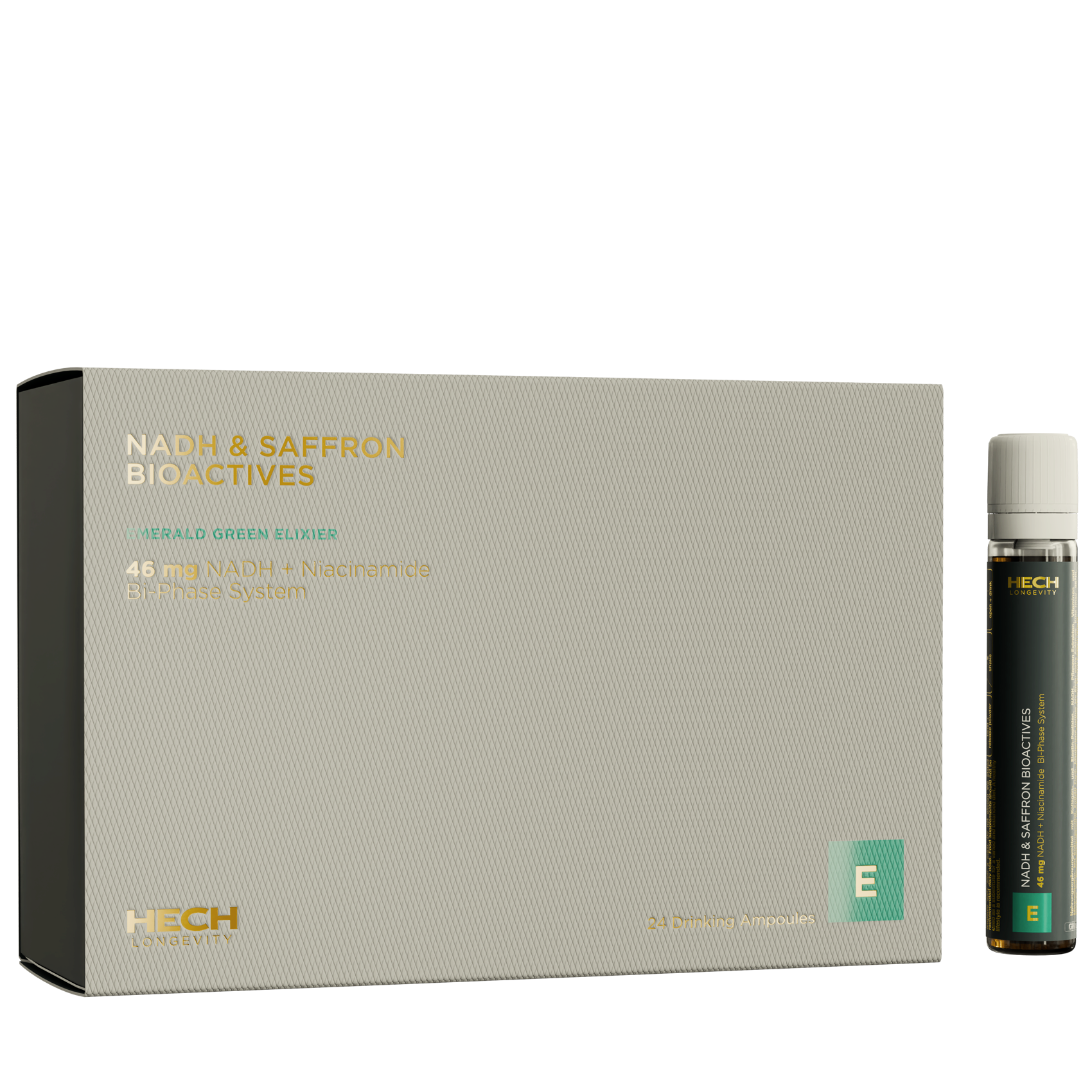
Want to Quit Wearing Makeup? Tips to Embrace a Makeup-Free Glow
Going makeup-free might seem intimidating, but embracing your natural beauty can actually be incredibly liberating. Achieving radiant, healthy skin from within is key and, with the right nutrients, you can confidently go bare-faced. Here’s how you can nurture your skin with a holistic approach that brings out your natural beauty.
1. Collagen: Foundation of Firm, Youthful Skin
Collagen is often called the "building block" of skin for a reason. This essential protein makes up about 75% of your skin's structure and is responsible for keeping it firm and smooth. However, as we age, collagen production slows down, leading to visible signs of aging, like wrinkles and sagging skin. Adding a collagen supplement can potentially help maintain your skin’s elasticity and strength, giving you that natural glow and youthful complexion.
How to Add Collagen: Mix collagen powder or liquid supplement into your morning iced coffee, smoothie, or water (any cold beverage). Consistency is essential for long lasting results!
2. Vitamin C: Brightening and Protecting
Vitamin C is a powerhouse antioxidant that protects the skin from damage caused by free radicals—unstable molecules from UV exposure, pollution, and other environmental factors. It plays a crucial role in collagen synthesis, meaning your body needs adequate vitamin C to produce collagen naturally. This vitamin also helps brighten the skin, fading dark spots, and promoting an even skin tone that many of us strive to achieve with concealers and foundations.
How to Use Vitamin C: Take 500-1000 mg daily or boost it naturally with citrus fruits and peppers.
3. Biotin and B Vitamins: Beauty Boosters
Biotin (Vitamin B7) is known as the “beauty vitamin” due to its importance for skin, hair, and nails. This vitamin aids in the production of fatty acids that nourish the skin and help maintain its moisture barrier, giving your complexion a dewy, healthy appearance. Additionally, B vitamins help reduce inflammation, which can be particularly beneficial for those with acne-prone skin.
How to consume B Vitamins: Most multivitamins contain B vitamins, but you can also find biotin supplements separately if you’re looking for a targeted approach. Foods high in B vitamins include eggs, nuts, leafy greens, and legumes.
4. Zinc and Selenium: Skin-Clarifying Minerals
Zinc and selenium might not get as much attention as collagen or vitamin C, but they play crucial roles in maintaining clear, youthful skin. Zinc helps reduce inflammation and can even prevent acne by controlling oil production. Meanwhile, selenium protects the skin against UV damage and helps maintain skin elasticity.
How to Use Zinc and Selenium: A daily dose of 8-11 mg of zinc and 55 mcg of selenium is generally safe for adults. Be mindful not to exceed these amounts, as excessive intake may lead to adverse effects. Nuts, seeds, whole grains, and fish are good sources if you prefer a food-based approach.
5. Hydration: A Simple Step for Radiant Skin
Though not a supplement, hydration is essential for beautiful, healthy skin. Aim for at least 8 cups of water daily to flush out toxins and boost nutrient absorption.
Supporting your skin from within, these nutrients can lead to a naturally smooth, even complexion.
Sources:
-
Schwartz, S. R., & Park, J. (2012). "A prospective, randomized, placebo-controlled, double-blind study evaluating the effects of collagen peptide on skin aging." Journal of Skin Research.
-
Proksch, E., Schunck, M., Zague, V., Segger, D., Degwert, J., & Oesser, S. (2014). "Oral intake of specific bioactive collagen peptides reduces skin wrinkles and increases dermal matrix synthesis." Skin Pharmacology and Physiology.
-
Pullar, J. M., Carr, A. C., & Vissers, M. C. M. (2017). "The roles of vitamin C in skin health." Nutrients.
-
Patel, D. P., Swink, S. M., & Castelo-Soccio, L. (2017). "A Review of the Use of Biotin for Hair Loss." Skin Appendage Disorders.
-
Bowe, W. P., & Joshi, S. S. (2016). "Acne vulgaris, probiotics, and the gut-brain-skin axis: from anecdote to translational medicine." Beneficial Microbes.
-
Dreno, B., Araviiskaia, E., Berardesca, E., Gontijo, G., Sanchez Viera, M., & Bettoli, V. (2018). "The Role of Zinc in the Treatment of Acne." Dermatology and Therapy.
-
Zeng, H., & Combs, G. F. (2008). "Selenium as an essential micronutrient: roles in cell proliferation and tumor cell invasion." Journal of Nutritional Biochemistry.




